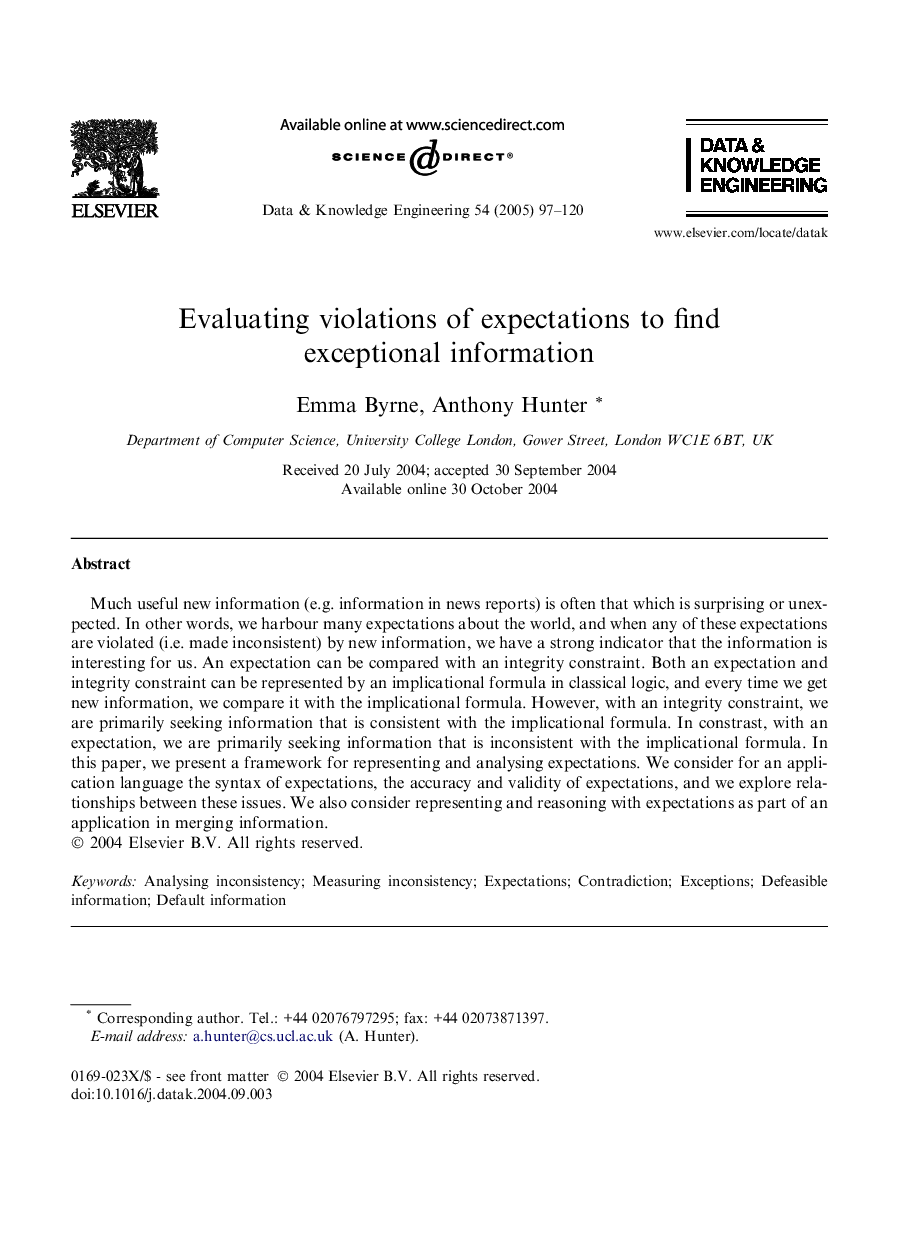| Article ID | Journal | Published Year | Pages | File Type |
|---|---|---|---|---|
| 10321292 | Data & Knowledge Engineering | 2005 | 24 Pages |
Abstract
Much useful new information (e.g. information in news reports) is often that which is surprising or unexpected. In other words, we harbour many expectations about the world, and when any of these expectations are violated (i.e. made inconsistent) by new information, we have a strong indicator that the information is interesting for us. An expectation can be compared with an integrity constraint. Both an expectation and integrity constraint can be represented by an implicational formula in classical logic, and every time we get new information, we compare it with the implicational formula. However, with an integrity constraint, we are primarily seeking information that is consistent with the implicational formula. In constrast, with an expectation, we are primarily seeking information that is inconsistent with the implicational formula. In this paper, we present a framework for representing and analysing expectations. We consider for an application language the syntax of expectations, the accuracy and validity of expectations, and we explore relationships between these issues. We also consider representing and reasoning with expectations as part of an application in merging information.
Keywords
Related Topics
Physical Sciences and Engineering
Computer Science
Artificial Intelligence
Authors
Emma Byrne, Anthony Hunter,
